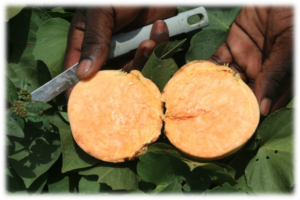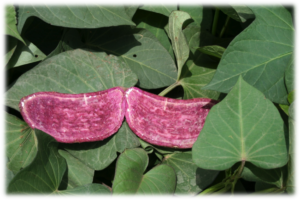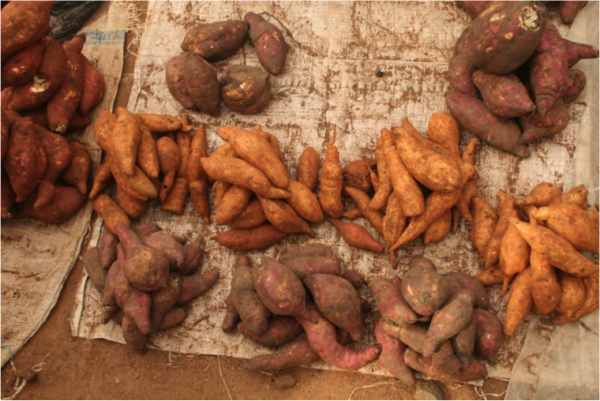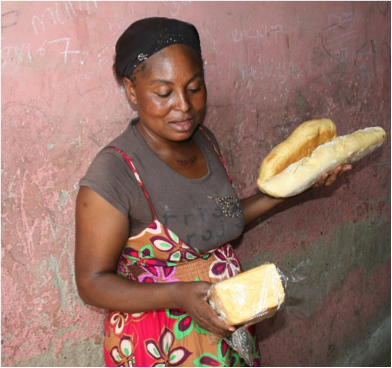Dr. Eunice Bonsi
“The Sweet Potato Lady”
Dr. Eunice Bonsi and her colleagues of Tuskegee University have been changing lives in Ghana and West Africa since 1995. Bonsi was first introduced to the world of nutrition at a young age by watching her talented mother in their kitchen cooking up Ghanian favorites.



For 22 years, Bonsi and her team have been making great nutritional strides in Ghana and West Africa by introducing purple and orange flesh sweet potatoes in some creative ways. The people of this region are typically familiar with the white flesh sweet potato which is far less nutrient rich. Early on, Bonsi focused more on the leaves of the sweet potato plant which provided vitamins, minerals, antioxidants, essential fatty acids, and dietary fiber. The actual bulb of the sweet potato contributes Vitamin A to Ghanian’s diets. This aspect of the sweet potato is extremely important due to the fact that around 60% of 6 year olds and younger are effected by VAD – Vitamin A deficiency. Vitamin A is also an essential nutrient for women who are pregnant.
Additionally, Bonsi and her colleagues have promoted a fast growing strain of potatoes to increase production and decrease time required, which consequently, improves income for the community.

Eunice Bonsi via skype at The Borlaug Institute panel on ending malnutrition by the year 2030
Bonsi and her colleagues agreed that they wanted to do something different with the introduction of sweet potato in Ghana. Unlike where it was introduced in Uganda, they wanted to develop recipes that local Ghanians would be able to reasonably achieve and enjoy! Bread is a very common food in Ghana and West Africa, so the team figured that a bread would be their best bet on introducing sweet potato to their diets. The team did this by producing a sweet potato flour and sweet potato “puree” that was then added to the bread to give it a golden color. Locals admitted that they would be willing to pay more for this gold bread because it signified the rich vitamin A content in the bread. Unfortunately, Robert Zavala and Eunice Bonsi heard that some bakers were simply adding golden food coloring in order to deceive locals into paying more for their golden bread.
Introducing purple and orange flesh potatoes was not easy – Bonsi recalls the local farmers being uneasy about the switch from white flesh to purple and orange. Soon enough, Bonsi and her team began training locals by teaching them additional common sense ways to utilize the potato flesh for infants. This training sparked interest from nearby communities hoping Bonsi and her team would make an appearance to improve the nutrition in their village. Villages began training other villages who had not yet been reached by the team of sweet potato gurus.

Bread produced using sweet potato flour and puree

Ghanian woman holding a loaf of sweet potato bread
Today, East Ghana has embraced the utilization of sweet potato leaves, local Ghanians LOVE the golden bread, and Eunice will continue working alongside the local government to include these sweet potatoes in school diets, neighboring villages and even countries!
Way to go Eunice!
For more articles on Eunice Bonsi click HERE!

Recent Comments